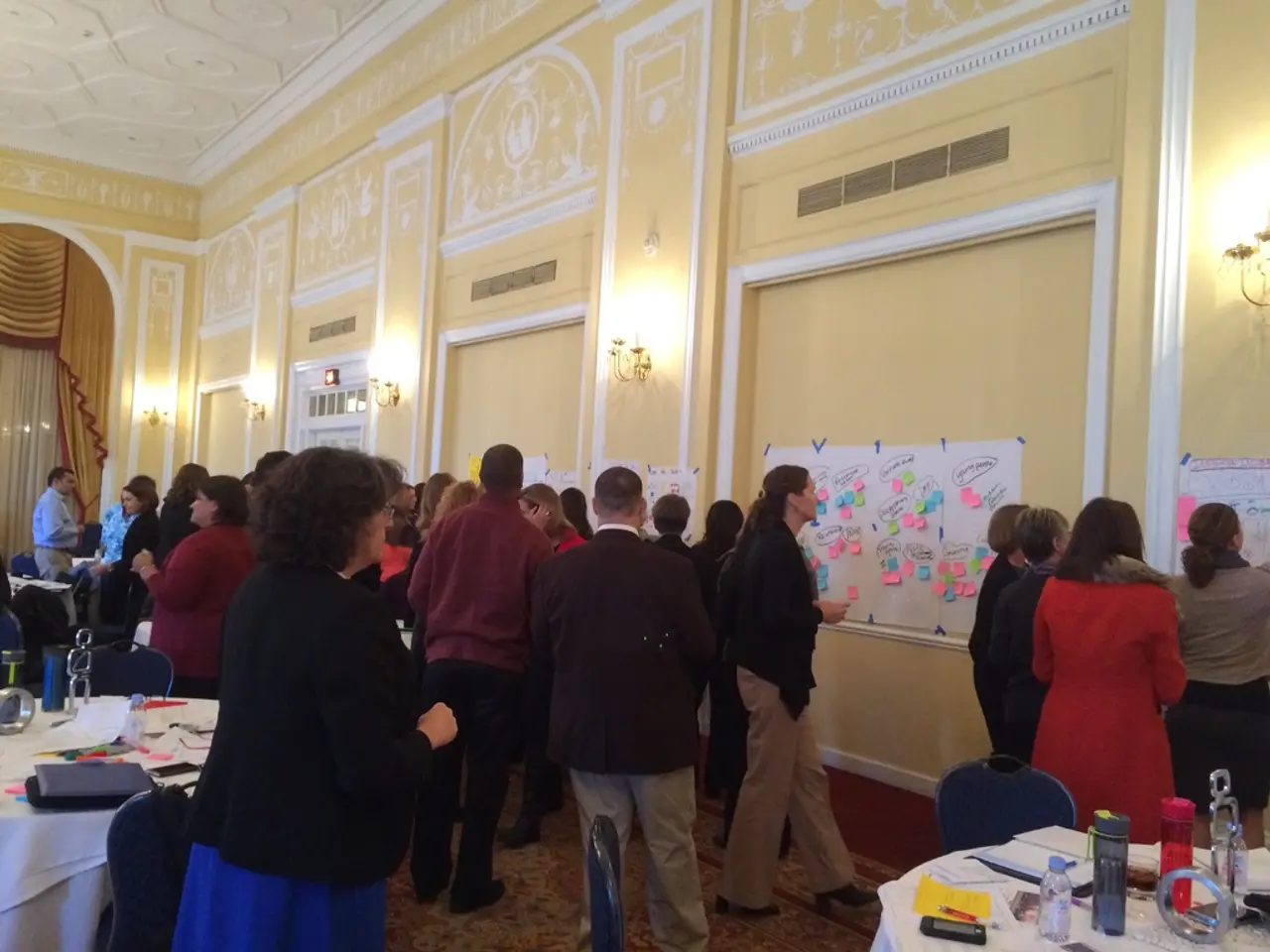Manchester's creative industries and their spatial relationship with deprivation and prosperity: an examination of the city's creative sectors
Addressing Inequality in Manchester's Creative Industries
Manchester's creative industries are a significant part of the city's economy, but a gap persists between its growth and that of London and other southern cities. A comprehensive approach is needed to level up opportunities and reduce persistent regional inequalities, according to a series of discussion papers and reports.
Closing the Funding Gap
Despite some narrowing, a significant "chasm" remains between London and the North, including Manchester, in terms of arts funding. Targeted efforts to redress historic underfunding and cultural exclusion are essential to break the cycle of regional inequality.
Enhancing Access to Creative Education and Careers
Reports highlight that too few young people in the North have access to the cultural resources and career opportunities needed to thrive in creative industries. Prioritizing arts education and pathways into creative careers can level up opportunities across geographic and socioeconomic divides.
Investing in Social Infrastructure and Community Spaces
Revitalizing iconic buildings, local markets, and other community hubs can encourage shared use of creative spaces, increase footfall, and provide anchor institutions for the everyday economy. This includes encouraging community ownership of cultural venues and supporting grassroots initiatives, which strengthen social solidarities and nurture creative engagement locally.
Leveraging Creative Health Initiatives
Greater Manchester’s Creative Health Strategy demonstrates how culture can contribute to addressing broader social inequalities by improving wellbeing through participatory, community-led creative programs. Such models encourage inclusive, cross-sector collaboration between health, social care, and cultural sectors, expanding creative opportunities especially for marginalized groups.
Supporting Creative Clusters
Research suggests that creative industries thrive in clusters through proximity-driven innovation. Strategic support for existing clusters and nurturing new ones in underserved areas of Manchester can stimulate economic growth and inclusion, helping to distribute creative sector benefits more evenly.
Professor Bruce Tether, the research director for the PEC and Professor of Innovation Management and Strategy at the Alliance Manchester Business School, University of Manchester, argues that growing the creative industries outside of London and the South East is a major, long-term challenge. Large areas with very little to no creative industries employment, especially in the north side of the city region, highlight the need for targeted intervention.
In conclusion, a comprehensive approach combining equitable funding, educational access, community-owned infrastructure, inclusive programming, and cluster development can help level up creative opportunities in Manchester’s city-region and reduce persistent regional inequalities.
- Evidence reveals a persistent gap in the growth of Manchester's creative industries compared to London and other southern cities, necessitating a comprehensive strategy to bridge the divide.
- London continues to exhibit a substantial funding "chasm" in arts compared to the North, calling for immediate action to address historical underfunding and cultural exclusion.
- Reports indicate that opportunities for young people in the North, including access to cultural resources and career pathways in creative industries, are insufficient.
- Revitalizing community spaces such as iconic buildings and local markets can foster shared use of creative spaces, stimulate the economy, and provide anchor institutions for the everyday economy.
- Greater Manchester’s Creative Health Strategy showcases the potential of culture to address broader social inequalities, improving wellbeing through participatory, community-led creative programs.
- Research indicates that creative industries tend to thrive in clusters through proximity-driven innovation, supporting both existing clusters and new ones in underserved areas can stimulate economic growth and inclusion.
- According to Professor Bruce Tether, growing the creative industries outside of London and the South East is a significant long-term challenge, with large areas of Manchester exhibiting little to no employment in the creative sector.
- A combination of equitable funding, educational access, community-owned infrastructure, inclusive programming, and cluster development can help reduce persistent regional inequalities in Manchester's creative opportunities, as outlined in the conclusion of policy-and-legislation documents related to general-news and culture.






